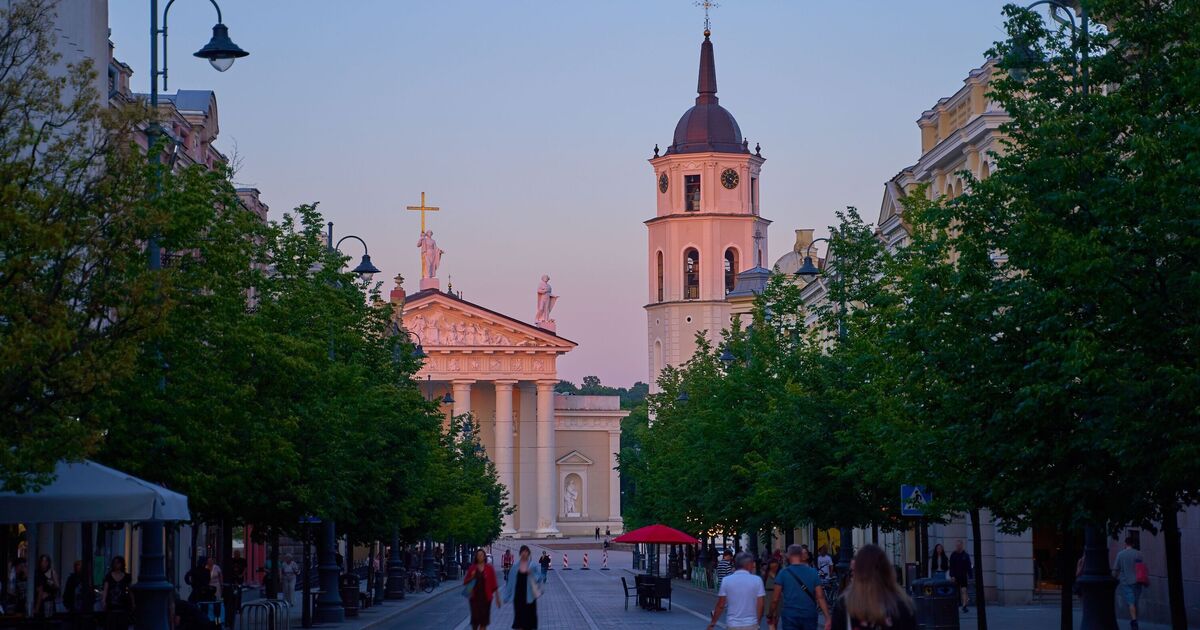The relatively undiscovered paradise of Lithuania, nestled in the heart of the Baltic region, is home to scenery as if straight out of a fairytale, with a unique blend of natural beauty and rich history.
This small country, often overlooked by tourists, is rapidly gaining recognition as Europe’s best hidden gem. In fact, it has been named as the second-best among 30 must-see global destinations and the number one destination in Europe in a new ranking.
The largest of the three Baltic states home to less than three million residents was hand-picked by the Lonely Planet’s international team of travel experts, writers, staff and online community according to topicality, unique experiences, “wow factor,” and ongoing commitment to sustainability, community and diversity.
It recognised Lithuania to be culturally rich and of great value, where tradition, a love of nature and a spirited counterculture live in harmony. The capital Vilnius adds to the country’s allure as the soon to be crowned European Green Capital in 2025, recognised for its approach to sustainable living.
Lithuania has on offer everything a traveller could wish for, from captivating medieval cities, pine forests, lakes to untouched Baltic sand dune beaches. It is perfect for those wishing to hike, cycle or enjoy water sports.
Not only is it a beautiful destination, but it’s also affordable, with inexpensive accommodation, dining, and transport options. According to Budget Traveller, you can even enjoy a refreshing Lithuanian beer for just £1.25.
The World Happiness Report, which analyses global happiness trends every year, ranked Lithuania in 19th position in its life evaluations chart considering the years 2021 to 2023.
The ranking, topped by Finland, saw Lithuania ranking higher than both the UK, in 20th place, and the US, in 23rd place.
One of its most remarkable natural attractions is the Green Lakes, a group of six inland lakes, renowned for their breathtaking emerald colour.
Other must-visit locations include the picturesque coastal village of Svencelė, Labanoras Regional Park with its 285 lakes nestled among charming Lithuanian villages, and the UNESCO World Heritage Site of Kernavė, rich in ancient history.
Lithuania is also home to a host of natural wellness retreats and spas. Renowned for its native therapeutic mud, mineral-rich waters and amber, resorts like Birštonas, Druskininkai, Palanga, and Anykščiai offer restorative spa experiences rooted in nature’s bounty. It is also home to the world’s first “amber sauna”, constructed from an impressive three tonnes of amber.
The country has gone through major transformation and growth since it broke away from the Soviet bloc in March 1990, becoming a member of the European Union, Council of Europe, NATO and OECD, among other supranational organisations.
Given everything on offer in Lithuania, it is a wonder why British tourists do not opt for the country over other holiday destinations, including Spain, which is crawling with tourists.
In 2023, Lithuania welcomed 1.1 million international tourists, which is more than double the number during the pandemic. It is also a substantial increase from the 470,900 tourists in 2021. Still, this is nothing compared to the 85.1 million received by Spain or the 36 million in Greece in 2023.
The two-hour 40-minute flights from the UK to the capital city of Vilnius are a bargain, starting at just £17.99, with several services operating daily.
